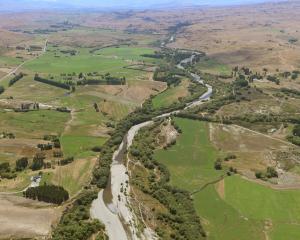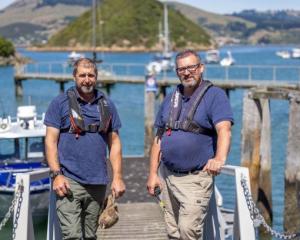Two district councils have added their voices to those concerned about the Otago Regional Council's proposed water-plan changes, with one Clutha councillor dubbing the changes "ludicrous".
At a meeting of the Clutha District Council's regulatory services committee last week, a joint submission from the council and the Central Otago District Council was approved.
Staff and councillors questioned whether the proposed water standards could be met.
Clutha District Council planning and environment manager Murray Brass warned councillors not to underestimate the "potential seriousness" of the proposed water-plan changes.
In a report to the committee, Mr Brass said the Otago Regional Council had been developing a new approach to managing rural water quality.
"Those standards are much, much tighter than they need to be."
These new standards would be very difficult for farmers to monitor and meet, forcing changes in the type of farming that could legally occur, with significant impacts on farmers, rural communities, and the district's economy.
The proposed changes could also have significant impacts on council services in the future, as it was likely that the same approach would be applied to urban and commercial activities over time, Mr Brass said.
Cr Gaynor Finch said she hoped many had made submissions to the plan.
"It's ludicrous. It can't go through the way it is. This is really just craziness - it won't work."
Cr Hamish Anderson said he hoped his fellow councillors would have a long, hard look into what the proposed changes would mean for the Clutha district.
The Clutha District Council and the Central Otago District Council made a joint submission to the Otago Regional Council's proposed plan change 6A (water quality), outlining the changes they deemed unacceptable.
In the submission, the district councils stated that while the obvious aim of the plan change was to set limits and targets for water quality, that would indirectly manage land-use activities.
However, the changes "did not adequately provide for variations within catchments", and other social and economic factors.
They expressed concerned that the rule changes "remove all ability for a resource consent to be granted and scope for a case-by-case assessment to be completed".
The submission also showed concern about the practicality of several rules, particularly around runoff deemed to be as a result of rainfall or when it was caused by something else.
Last month, the Dunedin City Council also spoke out against the proposed changes, lodging its own submission to the water plan.
City council water and waste services manager John Mackie told councillors that if the proposals were allowed to proceed unchecked, the social and financial implications for Otago communities would be "significant and far-reaching".












